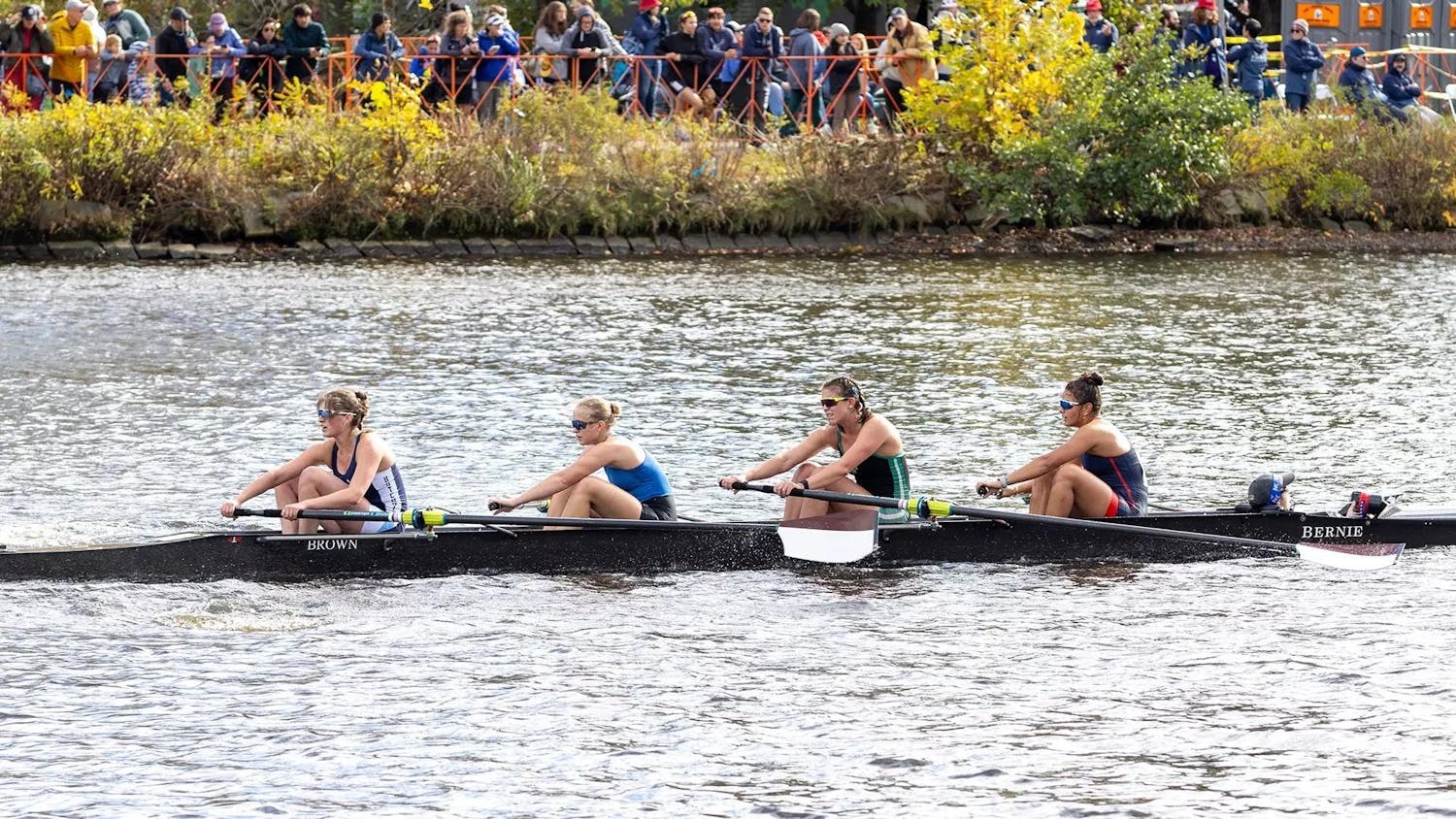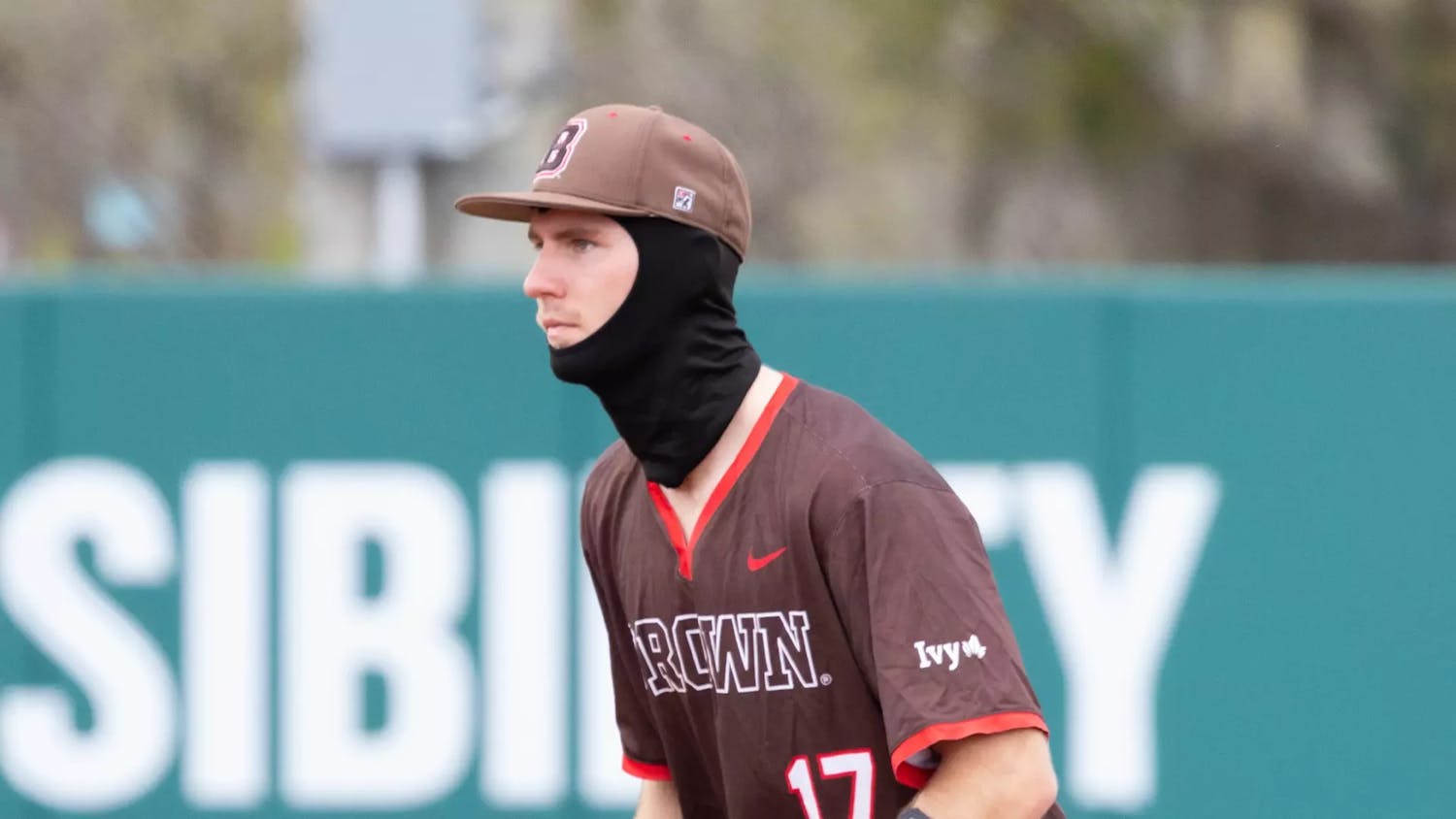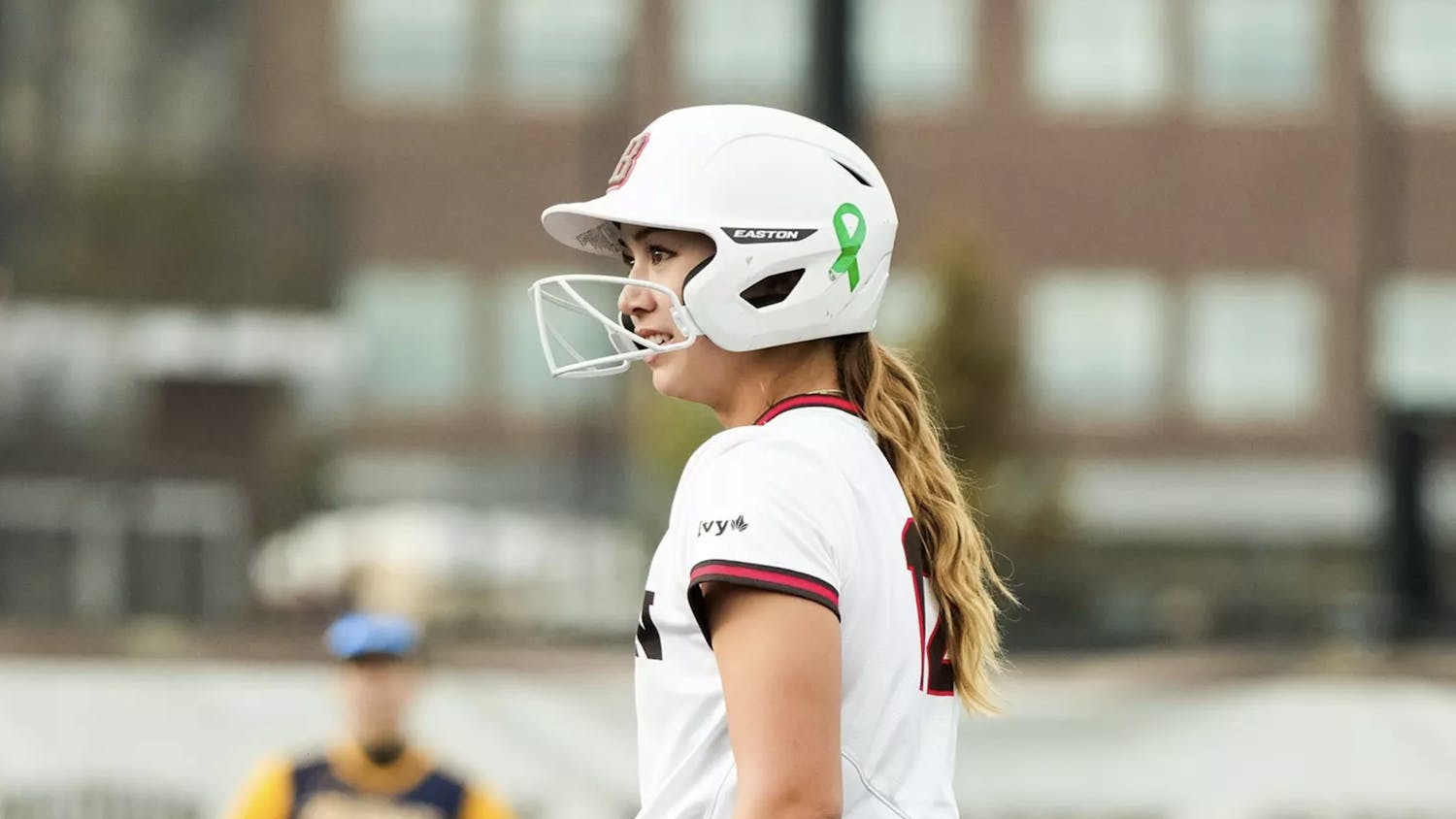Going into the 2010 football season, one of the biggest concerns for the Bears was at the wide receiver position — who would step up to fill the shoes of the prolific duo of Buddy Farnham '10 and Bobby Sewall '10? On the first offensive play of the year, Alex Tounkara '11 helped answer the question by breaking free and pulling in a deep pass along the sideline.
In his first varsity season, Tounkara has exploded onto the scene as one of the most dangerous deep threats in the Ivy League. The senior ranks second in the Ivy League in receptions (56) and receiving yards (773) and has had four games with over 100 yards receiving. Beyond the statistics, Tounkara has made big catches in key situations, and has emerged as a leader on a Bears team that has faced adversity all season.
For his strong play and accomplishments all season, and for his remarkable football journey, the Herald has named Tounkara athlete of the week.
Herald: Before this season you hadn't had much experience at the varsity level. What was it like to step right into a starting role and contribute since the very first snap?
Tounkara: That's the thing about college football. Everyone that's here at these schools was the best in high school, was a great athlete, so they prepare you as soon as you are a freshman. Practice is as intense as it can be and you learn from the best. I had Buddy and Bobby in front of me, who showed me a lot of good things, and going up against the first team defense two straight years, that made me play a lot harder.
What is the most difficult part of playing the wide receiver position?
That's tricky, because there's so many things that go into it. For Brown, the playbook and how much weight they put on the receivers, but that's a positive for us. We want to be able to carry the team and make big plays and be explosive.
We don't want to just block all the time. But blocking, at the same time, isn't easy for 6'5" guys like myself. Most corners are about 5'8", 5'7", so getting leverage on these guys is not very easy.
But the hardest thing overall, I'd say would just be the adjustment of how fast everyone is now compared to high school. In high school, I could just run past people and it wouldn't be a problem. Now you have to run good routes. You have to make good breaks.
You grew up in Belgium and moved to the United States with just your brother when you were 14. What was this transition like?
It was kind of a trip because even though he was my older brother, I was taking care of him all the time so I feel like I grew up a little early and missed out on a couple things, but it was good for me. I needed something like that, and it sprung my life into this whole crazy thing where I ended up at Brown, which is the best thing that's ever happened to me.
What sports did you play as a kid in Belgium?
(Laughs) I played nothing but soccer until I came to the states. Never tried anything else. You have to take swimming classes in Belgium because you can't pass a grade unless you can swim, but besides that, soccer all the time. Every day and night.
Do you still follow soccer today a lot?
Oh yes, I love it. The World Cup — I filled out a bracket on ESPN.com and was in the 99th percentile (laughs). I love soccer. I always keep in touch.
You didn't start playing football until your junior year of high school. Could you tell me about your first experiences with the sport?
It was kind of funny how I fell into it, because I walked into my high school and they encouraged students to have extracurriculars, so they asked me if I wanted to play a sport.
Being naive, I said sure, I'll play whatever, and the soccer team was pretty nonexistent, so the guidance counselor I had at the time took me to the football office. It's surprising to me, thinking back, that my coach actually let me play because I was about 6'5, 165 . Very skinny kid, knew nothing about football.
At first, it was kind of nerve-racking. It's football, so everybody thinks they're the best and everybody talks trash, and coming from Belgium and having never played the game before, I wasn't used to that. It took me some time to adjust. And I wasn't any good at the beginning (laughs), so after costing my team a whole bunch of holding penalties and offsides calls, I slowly started getting better and earned the respect of my teammates.
You were also captain of your basketball team in high school. What was your "go-to" move on the court?
(Laughs) That's actually funny because, with basketball, I also started pretty late. I think junior year my go-to move was pretty much get in the paint, try to body my way through, and lay it in off the glass. Senior year, I started taking a lot more liberties and tried to take people off the drive.
What are you concentrating in?
International relations and economics. Double major. Might as well get two for the price of one (laughs).
Here's the situation. You're in the NFL and there are no penalties for excessive celebrations. You score a touchdown. What's your best touchdown dance?
(Laughs) Oh my goodness. It'd probably be a combination of about ten celebrations. The first would be the Paul Raymond ('07) "put the team on my back," because my freshman year after Paul scored a touchdown, he would point at his jersey number on the back. That's how I would start, and then I'd probably continue on to the ‘Dougie', and somehow Jonah Fay ('12) would be there and we'd do some ridiculous dance together.
Do you have any superstitions or pregame rituals?
I have this shirt that I wear that says "Earn Your Keep." I feel like that pretty much describes all that we have to do as football players. This is a privilege. As much as we hate practice or might hate conditioning, we do it because we love it. There's no scholarships involved. This is a privilege, so earn your keep because you don't have to be here, you don't have to be on the team, you don't have to play.
What are you going to remember most about Brown when you graduate?
My teammates. I've met so many different guys that I'll never forget, from Paul Raymond freshman year doing the craziest things to Bobby Sewall and Buddy Farnham going to the NFL, and then Jonah Fay, Emory Polley ('14), some of these younger guys I see everyday. Chimso Okoji ('11), we came on our visit together — me, Chimso and Rob Gillett ('11), and we've been close ever since. So I'm going to miss these guys after graduation. The guys that I've met — I think that's the biggest thing that I'll always remember from Brown.




